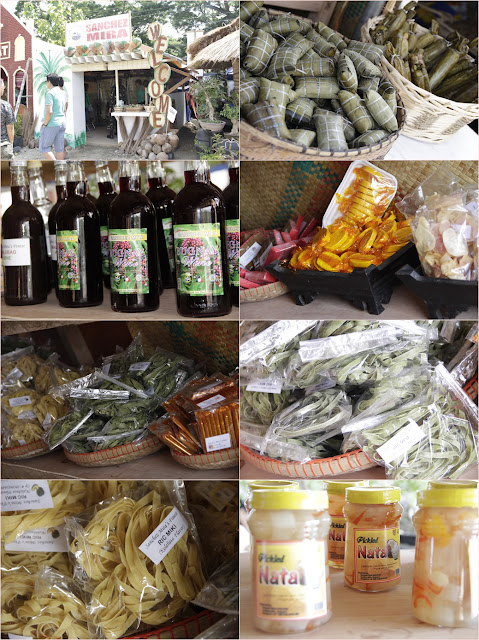Carne Ybanag
of Lighthouse Cooperative is Region 02 awardee
SMX
Convention Center, Manila. The Department of Science and Technology (DOST)
spearheaded the celebration of the National Science and Technology Week (NSTW) at
the SMX Convention Center, SM Mall of Asia with a week-long exhibit, from July
23 to 27 (Tuesday to Saturday), 2013. Dubbed as ExpoScience 2013, it showcases
the latest innovations and inventions of Filipino scientists and engineers,
etc.
Senator
Loren Legarda led the tour of the exhibition booths after the opening program.
The exhibit highlighted DOST technologies such as the Advanced MaterialsLaboratory (ADMATEL), a testing facility for semiconductors; the AutomatedGuideway Transit (AGT), an alternative transportation now being used at
UP-Diliman; the Nationwide Operational Assessment of Hazards or Project NOAH
which is DOST’s response for a more
accurate, integrated, and responsive disaster prevention and mitigation system
especially in high-risk areas throughout the Philippines; DOST’s Certified Seed
Production program for improved agricultural productivity; and the other
ICT-driven tools to make the business process outsourcing (BPO) industry more
competitive, and many others. It also featured the ceremonial switching of
Project NOAH’s 1,000 sensors expected to be installed within the year. Also
featured was DOSTv, a web channel that provides 24/7 information on the
weather.
The
Small Enterprise Technology Upgrading Program (SETUP) Forum was conducted on
the second day of the NSTW celebration wherein sixteen (16) business firms/ SETUP
beneficiaries were awarded as Outstanding SETUP Adopters: Tartland Baguio
Pasarabo (CAR); Maglaya’s Woodcraft (Region I); Carne Ybanag-LighthouseCooperative (Region II); Amanda’s Marine Products (Region III); MFP Home of
Quality Food Corporation (NCR); Farmtec Foods, Inc. (Region IV-A); Mindoro
Progressive Multi-Purpose Cooperative (Region IV-B); Belen’s Pinahamis Na Pili,
Atbp. (Region V); Trappist Monastic Food Products (Region VI); Total Woodcraft (Region
VII); TAP’s Handmade Products (Region VIII); Woodtech Builders (Region IX); Northern
Mindanao Federation of Dairy Cooperatives (Region X); Rosario’s Fruit Stop
(Region XI); Rafols Machine Shop and Engineering Services (Region XII); and
Marjeck Food Products (CARAGA). Farmtech Foods, Inc. later received an award as
the National Level Best SETUP Adopter.
The
DOST-SETUP is a banner program of the Department of Science and Technology. It
is a nationwide strategy to motivate,
encourage and assist Small and Medium Enterprises (SMEs) in improving their
productivity and competitiveness through
the technology interventions like provision of the cost of equipment through
Innovative System Support (ISS), technology trainings, product development,
plant lay-out, equipment design with training for its utilization, laboratory
tests of products, packaging and labelling, trainings on Good Manufacturing Practices (GMP), 5S,
Hazard, Analytical, Critical and Control Point (HACCP), Energy Audit, Cleaner
Production Technology (CPT), consultancy services through Manufacturing
Productivity Extension (MPEX),
Consultancy on Agricultural Productivity Enhancement (CAPE) and product promotion thru S&T
Fairs, product flyers and website
development.
For
the last ten years of the program, it has generated over Php73 billion in
sales, generated nearly 44,000 jobs, penetrated over 2,000 new markets and has
Php0.5 billion fund for this year. It is
collateral-free, zero interest and proposal-driven funding that is payable to
the DOST within a period of three (3) years. by:christiandsales



































